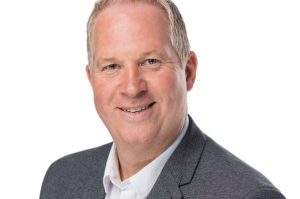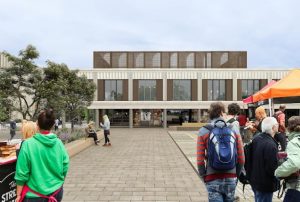Morrisons chief reveals secrets of success

THE CHIEF executive of Yorkshire-based Morrisons has revealed how he resisted calls to radically change the way the business was run when he joined Britain’s fourth largest supermarket group.
Dutchman Mark Bolland also told the audience at the annual KPMG Retail Dinner last night about how he had helped boost Bradford-based Morrisons’ fortunes.
In March the group posted a 13% hike in profits to £636m on sales up 12% at £14.5bn.
Mr Bolland, who joined the group from brewing giant Heineken in 2006, said one tip for other businesses was “don’t change for the sake of change”.
He explained; “When I was appointed the analysts and the City were all clear that Morrisons had a few problems and that what I needed to do was sell the real estate, sell the supply chain, go online, move into online and open convenience stores.
“What I did instead though was just to look at what Morrisons was good at and focus and build on this.”
He said he picked 12 areas where the business could look to improve and set up working groups containing not external business consultants but young, bright people from within the organisation.
“On the first day I sat down with my board team and said: ‘We are fixing this business. I want no more projects or change.’ I said let’s build a strategy with core ideas. We had the 12 teams who reported back with things to improve or maintain.”
He said he soon discovered that Morrisons was fundamentally a good retailer and that its supply chain – it operates its own food factories – were a clear point of difference, and meant that the company was able to get its produce into stores much sooner than its competitors.
He said the company’s “heart and belly” were healthy – in terms of willingness of people to work hard, and their passion for what Morrisons did, but said it was not “using its head”.
“There was no market research team, no group HR director for a business with 135,000 people, no product development, no marketing department.
“We added all these skills to the company, while making sure its heart was still beating strongly.”
He said new people had to be a good cultural fit with the business: “They’d be preferably Northern and have a can-do mentality, and the ability to do something tomorrow.”
Mr Bolland said the focus on food and freshness was underpinned by rigorous training: “We have bakers, butchers and fish-mongers in our stores, all passionate about what they do.”
On the question of pricing he said this was a simple process: “Be cheaper than Tesco and Sainsbury and compete to the last penny with Asda.”
He openly admitted that he likes to operate “under the radar” and does not seek to “make headlines” as some of his peers do.
Mr Bolland conceded though that his environmental drive, which has seen Morrisons’ carbon footprint reduced by 36%, was becoming hard not to talk about.
“The environment is mostly about being more efficient, saving costs and inspiring people to do things in new ways…I see it as a licence to operate, nothing else.”
He revealed that Morrisons’ work with local communities through schools had been an unexpected success.
In keeping with its focus on fresh food the retailer has been issuing vouchers so schools can buy seeds and tools and grow their own produce.
“We wrote to 8,000 schools about this, and expected 1,500 and 2,000 responses, but in the end got 18,000 – because word spread about it.”
Turning to the future he said he would resist moving into convenience stores and the Internet and would continue to focus on the core business and attracting more people into its stores.







